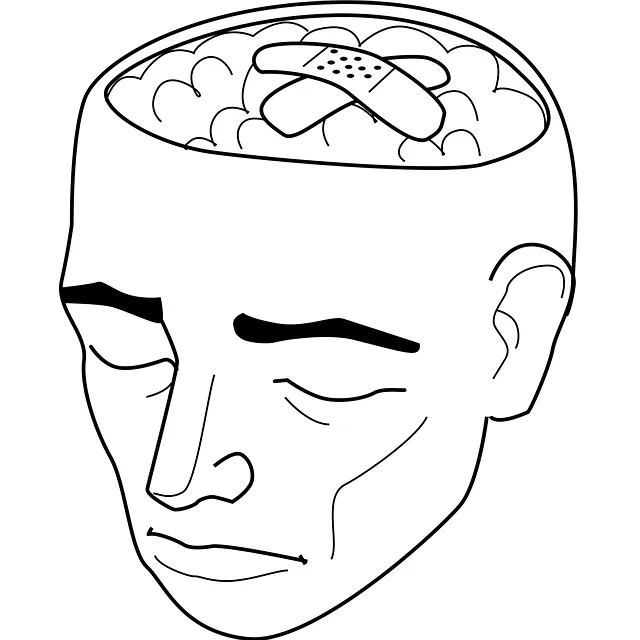The Lakewood Kaiser Permanente psychiatry reviews highlight successful efforts to reduce mental health stigma through educational initiatives, outreach programs, and support groups. They promote understanding and empathy, encourage open conversations about mental health, and provide resources to create a supportive environment. Key strategies include mindfulness meditation for staff and patients, healthcare provider cultural competency training, and community engagement workshops, fostering an inclusive atmosphere where individuals feel comfortable seeking help without fear of judgment.
Mental illness stigma remains a significant barrier to effective mental health care. This article explores strategies to reduce this pervasive social construct, focusing on innovative approaches like the Lakewood Kaiser Permanente model. We delve into its impact on patient outcomes and community support. Additionally, we examine the role of community engagement and education in breaking down barriers associated with mental illness, drawing insights from Lakewood Kaiser Permanente psychiatry reviews. By understanding stigma’s effects and implementing effective countermeasures, we can foster a more inclusive and supportive society for those facing mental health challenges.
- Understanding Stigma and Its Impact on Mental Health Care
- Strategies for Reducing Stigma in Healthcare Settings: The Lakewood Kaiser Permanente Model
- Community Engagement and Education: Breaking Down Barriers to Support Mental Illness
Understanding Stigma and Its Impact on Mental Health Care

Stigma surrounding mental illness can have profound effects on individuals seeking help and on the quality of care they receive. It often manifests as negative attitudes, stereotypes, and beliefs about people with mental health conditions, leading to discrimination in various aspects of life, including employment, education, and healthcare. This stigma can deter individuals from openly discussing their struggles, seeking professional assistance, or even acknowledging their symptoms, thereby exacerbating existing challenges.
At Lakewood Kaiser Permanente, psychiatry reviews highlight the ongoing efforts to combat this issue. Through educational initiatives, outreach programs, and support groups, they aim to promote understanding and empathy. Encouraging open conversations about mental health, raising awareness of available resources, and providing platforms for sharing experiences can help reduce stigma. Additionally, training in mindfulness meditation and risk management planning for mental health professionals is crucial in fostering a supportive environment, boosting confidence among patients, and improving overall mental healthcare outcomes.
Strategies for Reducing Stigma in Healthcare Settings: The Lakewood Kaiser Permanente Model

Reducing stigma in healthcare settings is a critical aspect of supporting individuals living with mental illness. The Lakewood Kaiser Permanente model offers an innovative approach, as evidenced by its psychiatry reviews, which highlight successful strategies. This model emphasizes the importance of creating an inclusive environment where patients feel understood and respected. One key strategy involves implementing Mindfulness Meditation practices for both staff and patients, fostering a sense of calm and reducing defensiveness that can hinder open communication.
Additionally, Healthcare Provider Cultural Competency Training plays a pivotal role in this model. By educating medical professionals on the diverse cultural backgrounds and experiences of their patients, they gain insights into potential barriers to care. This training equips providers with the skills to offer tailored support, improve patient engagement, and enhance overall mental health outcomes. The Lakewood Kaiser Permanente approach underscores the power of these integrated strategies in not just managing symptoms but also cultivating a supportive atmosphere that encourages individuals to seek help without fear of judgment.
Community Engagement and Education: Breaking Down Barriers to Support Mental Illness

In efforts to reduce stigma surrounding mental illness, community engagement and education play a pivotal role in fostering understanding and support. Lakewood Kaiser Permanente psychiatry reviews highlight successful initiatives that have transformed lives by breaking down barriers and promoting open conversations about mental health. Through interactive workshops and awareness campaigns, communities are learning to recognize the signs of various mental health conditions, dispelling myths, and embracing individuals dealing with these challenges.
This approach encourages the development of a supportive network where people feel comfortable seeking help. By integrating self-care routine development for better mental health and compassion cultivation practices into community programs, individuals gain tools to enhance their resilience and overall well-being. These strategies not only boost confidence but also create an environment that welcomes dialogue about mental illness, ultimately leading to improved access to care and reduced stigma.
Mental illness stigma reduction is a multifaceted approach, as evidenced by the Lakewood Kaiser Permanente psychiatry reviews. By implementing strategies like community engagement and education, coupled with innovative models for healthcare settings, we can create an environment that fosters understanding and support. Breaking down barriers through open dialogue and education is key to enhancing mental health care accessibility and improving outcomes for those facing mental illness.






